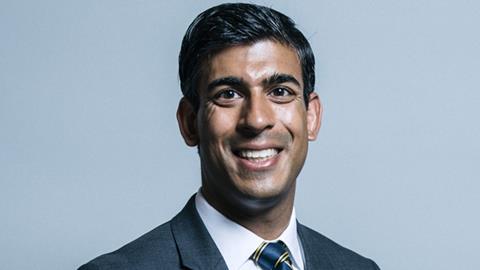
Reports that the prime minister Rishi Sunak is planning to water down pledges on green policies, including putting back the ban on sales of new petrol and diesel cars and vans until 2035, have generated a storm of comment both for and against.
Downing Street has announced that Sunak will be making a statement at 4:30 this afternoon, and he is expected to say he is still committed to reaching net zero for the country by 2050, but in a “more proportionate way”.
The EV charging sector has urged the prime minister to stick to the 2030 target. The industry’s trade body, ChargeUK, released a statement saying: “For many years the UK has been a leader in the transition to the green economy of the future. Government policies have attracted investment to the UK and created well-paid, high-quality jobs.
“Members of ChargeUK have committed over £6bn to roll out EV infrastructure in all parts of the UK at an unprecedented rate, turning on a new public charging point every 20 minutes, creating good, sustainable jobs, supporting the switch to EVs and thereby reducing emissions and improving air quality for all.
“This has been made possible by a clear commitment from the UK government to decarbonise our economy, with the 2030 phase out date for new petrol and diesel vehicles 2030 acting as an essential catalyst. In his first speech as Prime Minister, Rishi Sunak said ‘I will place economic stability and confidence at the heart of this government’s agenda’. Today’s extremely worrying news is not consistent with economic stability or confidence. It will compromise the entire industry, and place jobs and consumer and investor confidence at risk.
“More importantly, government will penalise individual drivers who are doing the right thing. More and more people are making the transition to electric vehicles, as they have been encouraged to do. They are entitled to expect government to keep its promises and continue to support the roll out of charging infrastructure across the UK.
“ChargeUK calls on the Prime Minister to confirm that the UK government remains committed to the 2030 phase out date for new petrol and diesel vehicles and to a strong ZEV mandate.”
The RAC also expressed support for the current target but urged the government to provide greater incentives to buy EVs.
RAC head of policy Simon Williams said: “It’s disappointing that the 2030 date might be pushed back as it risks slowing down the momentum the motor industry has built up and drivers’ adoption of electric vehicles (EVs). Regardless of what happens, we strongly hope manufacturers will continue to produce EVs in ever increasing numbers as this is ultimately what’s needed to help bring prices down for both new and second-hand cars, as cost remains one the biggest barriers to going electric.
“At the same time, in the run-up to the ban on the sale of new petrol and diesel cars we’d like to see the Government incentivise the cheaper end of the EV market by reintroducing a form of the plug-in car grant.
“It’s also important to remember that the 2030 deadline as it stands only stops the sale of new petrol and diesel cars which means a lot of people won’t be affected as the majority tend to buy used vehicles.”
Car manufacturer Ford warned that pushing back a ban on sales of new petrol and diesel cars to 2035 would undermine business certainty, and Mike Hawes, chief executive of The Society of Motor Manufacturers and Traders (SMMT), said: “The automotive industry has and continues to invest billions in new electric vehicles as the decarbonisation of road transport is essential if net zero is to be delivered. Government has played a key part in bringing some of that investment to the UK, and Britain can – and should – be a leader in zero emission mobility both as a manufacturer and market. To make this a reality, however, consumers must want to make the switch, which requires from Government a clear, consistent message, attractive incentives and charging infrastructure that gives confidence rather than anxiety. Confusion and uncertainty will only hold them back.”
However, the proposal was backed by Howard Cox, the Reform UK candidate for London mayor and founder of fuel price campaign FairFuelUK.
He claimed the 2030 date for banning new petrol and diesel cars was “always doomed”, and said he was “delighted we now have some new breathing space to get it scrapped completely”.
































